#since the USA produce a lot of meat
Explore tagged Tumblr posts
Text
Tarrifs, shmariffs, what do ?
Grrrrreeeting my dear Tumblr users, it is I, random economy oriented Tumblr User that was onces convinced his blog was gonna be about ships (and not those on water).
I come to you bringing explanations on tarriffs, what they do, what they bring and what their consequences are, since they are kind of a big topic right now, what with Trump and all. "But Mr. Rando, I already know!" you say, and I believe you, and I am proud of you, but much like in my irl class, not everyone has the same knowledge base, so even if it's a bit tedious for you, we have to cover the topic so everyone is on the same page. Alright ? Swell.
So, what is a tarriff ? A tarriff is a tax levied on importations. AKA, you buy something from out-of-country and get it into the country, you pay the tarriff. Many of you will have seen the memes and viral posts, and will triumphantly point at the part where I say the importer pay the tarriffs. And you are right to do that, it's kind of very important. It's the main point, even.
Why is it the main point ? Easy : if outside stuff cost more, inside stuff better choice. Or, in non-caveman speach : the increase in cost on foreign products and resources will either increase the competitivity of domestic products and resources, or level the playing field. At least that's the idea.
"So", I hear you ask, "are you going to be the Nth user here to tell us that tarriffs are going to fuck the average US citizen over? Because we already know that."
Well, yes, but also know. Also, I'm not sure you have the nuance on the topic, and I do love me some tasty, tasty nuance. And custard. But alas, custard is not the topic of today. Economic nuance is. Now, onto the topic :
The main question to ask here is "what is getting hit by the tarriffs ?" Because the impact will vary a lot depending on what gets hit. To give a simplified framework, there's 3 types of economic goods : raw resources, transformed goods and finished products.
Raw resources are ... raw. Iron ore, lumber, clay, wheat grain, lithium ore, water, dirt, raw oil, you get the idea. Those resources tend to have razor thin profitability margins, because so much is produced.
So, what would be the goal of tarriffs on raw resources ? Well, that would be protecting or developping in-country extraction/production facilities, whether those be mines, farms, fishing fleet or lumber mills.
And that's where a tiny little factor comes into play : economic viability, AKA whether a given activity in a specific region is economically interesting.
Like I said, raw resources tend to have razor thin profitability margins, this means that overwhelmingly, raw resources are extracted in regions that allow lower costs.
Some of those costs can be reduced in costlier economies, like environmental or safety costs, with some good ol' deregulation ... up to a point. Even the notoriously protest-averse USA would face some degree of protests if all safety regulations disappeared and industrial accidents jumped 5000%. Poorer countries tend to be more lax on those regulations, and/or not really enforce them, or both.
On the other hand, there are costs that can't be reduced all that much in a given economy, like the cost of manpower. Due to the cost of living, there's a limit to how low you can go with your offered wages. For instance, offering $12 a day in the USA will yield fuck all in terms of recruitment, but $6 a day in the poorer parts of Africa will cause a flash mob of eager-to-work candidates.
And these are the two big factors of the equation : can the reducible costs be lowered enough that the irreducible costs aren't that much of an issue anymore ? And when the answer is inevitably no, can the tarriffs bridge the gap ? Well, uh ... that's gonna depend a lot. But overall, I would lean more on "no". African iron will be cheaper than US iron every day for the foreseeable future, unless you impose a fucking ungodly amount of tarriffs.
Some resources that cost more will see better results from tarriffs, but far from all. Like, tarriffs on iron, copper, tin, etc ? Bad idea. Tarriffs on helium, lithium or other rarer and costlier resources ? Could protect or help the national production indutry.
In the cases where, even with tarriffs, outside product remain more competitive, there's just going to be an increase in cost down the line, and wealth is just going to exist the country more. In the cases where the inside product becomes more-or-as competitive, then perhaps wealth can remain in the country and help the economy. But, well, we'll get to it later.
Raw resources, done. Two more to go.
Transformed goods (henceforth TG for simplicity) ! They are everywhere and they make up the bulk of international trade. Phone parts ? TGs. Flour ? TG, mostly. Tires ? Eyup, TGs. Radars ? TG. Ink? Oh you bet it's a TG.
So, what would be the aim of tarriffs on TGs? Protecting national industry, giving it room to develop or maybe even forcing multinationals to relocate/create the industry inside the country.
So, TGs are where globalization starts clashing really, really bad with tarriffs. Because you see, with globalization, there's been a global dispatching of production facilities. So you'll have part A that's produced in Italy with resources from Greece, part B that's made in Australia with Indonesian resources, part C that's made in Brazil with stuff from Zambia, etc.
the funky stuff happens when you need to combine parts A and C in a US plant, but then have to send the result over to Mexico to weld part B on top. And then you have to get it back into the US. Double tarrifs, you say? Yepperino, my dear student, double tarrifs. On this incredibly simplified exemple. Imagine what that looks like when there's 3 or 4 more parts involved.
At that point the question is : is it cheaper to pay the tarriff conga line or to just send the US parts of the production line overseas ?
"That sounds like the opposite of the stated goal" you say, with the blazé impassivity of someone that saw it coming a hundred miles away. Yes, yes it does. That's why tarriffs have to be manipulated very, very carefully, especially on transformed goods and intermediate steps of the production process, because it can stack up real fast, real bad.
Sometimes though, paying the tarriff conga line IS the better option, especially for sensitive processes that require a well-trained workforce with in-depth theoretical knowledge of very specific fields and access to training for cutting-edge machines, which is only found in the United Staaaaa ... what do you mean, Europe ?
So yeah, very sensitive, tarriff with care. And in either case, expect cost increases, which WILL be recouped with increased sale prices, leading to a domino effect.
And now, the finished products. The end of the line. The consumer targeted stuff. What you buy online and in shops.
What's the aim of tarriffs here ? Same as before, protect native industry, give it room to develop and force multinationals to relocate the production plant into the country.
At this level, you'll see similar considerations as with the TGs, with one tiny added funky detail : the costs of the two previous steps pile up here. Indeed, the tarriffs on TGs and raw ressources are liable to eat up the profit margins of the finished products, and since profit margins are sacred and must be preserved at all costs, well the simple solution is to simply increase the price of the end product in proportion to the other cost increases. And that means shit costs more for people.
"Well, that's awful" you say, and you are right. But we're getting started. It's time for another trip through early 2000s deviantart, say it with me : INFLATION !!! Except instead of your favourite character being turned into a balloon, we're talking about the content of your wallet losing value. And it's going to hit every industry that has to suffer those tarriffs. At which point the entirety of society faces a dillemma : do we increase salaries accross the board (with the associated widespread price increases) or are we chill with a global reduction in the amount of shit people can buy ?
And that's where it starts getting funky (derogatory, fear inducing), because if enough industries are hit with tarriffs, either choice is bad.
Increase salaries ? You speed up inflation and reduce confidence in your money, making exports admitedly more interesting but imports far less so, and when you are a globalized economy where there are imports everywhere at various levels, it gets spiky really fast.
Going the "tough luck fucko" route ? Well first off, rude, second off : congratulations, you are reducing the overall economic activity in your country, creating unemployment and poverty, reducing confidence in your economy and, if things go really, really poorly, starting a recession (WHOOOOO!!! Who wants to sleep under a bridge ?).
Now, is this a doomer prophecy ? No. No it's not. We have to keep in mind that systems, including economic systems, can adjust their course after starting in a new direction. It's rather unlikely that everything will consistently go bad in the worst way possible. But.
A lot of that is dependant on precision political decision-making, and the person soon-to-be in charge of these decisions in the USA has made it clear that he does not intend to listen to outside opinions or do precision. And considering his last go at it, I believe him. So I'm not optimistic. I don't think the US economy will collapse, that would be absurd, but I don't see the US having a good time either.
It's going to be very, very complicated, and it will depend a LOT on what fields are actually affected, in what proportions, etc.
And keep in mind, I haven't even talked about retaliatory tarriffs (from the people whose products you put tarriffs on). Or political tensions inside the US, that's something I don't feel qualified to talk about. Or the non-economic effects on geopolitics. Or the effects on the global economy.
If I had to make a prediction, I would guess that quite a few production lines will be reorganized to either have long stretches inside the USA or to be entirely divorced from them for as long as possible. Some products may become economically non-viable when it comes to the USA. Some US companies may find themselves no longer economically viable due to reliance on tarriff-affected outside goods and resources. It's hard to guess how large the impact will be, but there WILL be an impact, and most of it will likely be felt by the USA. Because tarriffs aren't paid on expedition, they're paid on reception.
So, as a French, all I can say is : bonne chance.
#economy#tarrifs#trump tarrifs#a little lesson in economy#USA#united states#inflation (not the kink)#not as funny as my last economy post#I'm ill so I'll blame that#also it's a bit harder to make jokes on tarriffs#my lungs feel like mince meat#what with my coughing all the time#on the plus side mince meat is less likely to be hit by tarriffs#since the USA produce a lot of meat#on the minus side#that meat is full of hormones#and other chemical shits#that ain't good for you
49 notes
·
View notes
Note
Is there beef with the Holstein cows and you or what was that joke lol
It's kind of wild It's just never come up on this blog before, but I HATE holsteins. Bottom 10 cow breeds for me. I hate how they're so common they account for the majority of milk produced. I hate that they're the "default" cow to the point where some don't even know cattle HAVE other colors. I hate their tiny horns (IF THEY EVEN HAVE THAT. LOSER ASS HORNLESS COW) and their painfully massive udders.
Legit I'm trying so hard to not launch into a No Mouth Must Scream style AM speech-- shoot my hand slipped.
(AM speech about why i dont like holsteins below the cut)
For starters, I have to give a brief lesson on what these terms mean; the "Holstein" is the American strain of the "Frisian" breed. Frisians are an ancient breed from Frisia, in the north of what we now consider the Netherlands. Crosses between the breeds are "Holstein-Frisians."
(There’s even more to this but im keeping it as simple as possible. Also one of my friends is Frisian and she is probably going to kill me for describing it like that.)
Historically, livestock was adapted to the environment they lived in. Frisians were bred by the Frisii people for hundreds of years in extremely grass-rich, lush, flat environments. The "polders" of the northern parts of the Netherlands. They're huge and eat a LOT of food.
Traditional Frisians were developed to produce as much meat and milk from a single individual as possible, without compromising the health of the cattle with constant inbreeding to get quick gains. We are talking about a breed that is over 2000 years old. They had the perfect environment to make The Ultimate Food Cow and by god they did it. I can respect that.
So, take that, drag it across an ocean to a place that does NOT have polders, and add the rapid enshittification of capitalism to it. BAM you've got a fucking holstein.
There is ONE goal for "improving" the holstein. Make More Milk. As long as the black and white milkbag leaks enough, nothing else matters. Health? Fertility? Feed ratio? Ability to not die of infection? WHO CARES. MILK LINE GO UP.
Over 90% of holsteins are inbred to start with, because Milk Line Go Up. To the tune of having an average COI of 8%-- where extreme negative effects (think Hapsburgs) start to crop up around 10%
Holstein bulls are aggressive bastards (many dairy bulls are), so no one wants to keep intact males in their herds, meaning most cows are artificially inseminated
Not being limited by the natural lifespan of a living bull means that the same stud can keep having direct offspring for decades after his death
Toystory the bull had 500,000 calves before he died, and hit over 1 million offspring in 2015. That's ONE animal and to put this in perspective, there are 9 million holsteins in the US.
DON'T WORRY IT GETS WORSE
Not only can 99% of holsteins be traced back to just two bulls-- 99% of male holsteins share one of two exact Y chromosomes with those two bulls.
The gene pool is so small that it's equivalent to about 60 individuals. Warrior Cat allegiances are larger than that. That's barely bigger than modern ThunderClan.
"Massive lack of genetic diversity" does not begin to capture the existential dread of this situation. Mark my words, WATCH, when the Bird Flu finally mutates a strain that rips through a mammalian population, it's gonna be in the USA and it's going to be through our dairy cattle.
This is not prophecy or me laying a curse on the land, this is the natural consequence of basing the stability of US milk production on the equivalent of 9 million clones of two classrooms worth of individuals, and then packing them in close quarters
And we don't have to wait for doomsday for the impacts to be apparent on the cattle themelves
Holstein fertility has also dropped by half since the 1960s when the intensive inbreeding really kicked into high gear
Because their whole body is dedicating all of their resources to milk production, they have a notoriously "bony" frame.
Show judges, however, like this because they think that's a very "feminine" look for a 1600 pound ruminant. Very normal thing to think.
Like. I don't know if i can communicate this to people who don't look at cows a lot (it's not quite as obviously dramatic as a pug skull) but here is a comparison of an "ideal" show holstein and an "unselected" holstein from a herd that's been established as a sort of "control group" for what they looked like back in the 1960s;
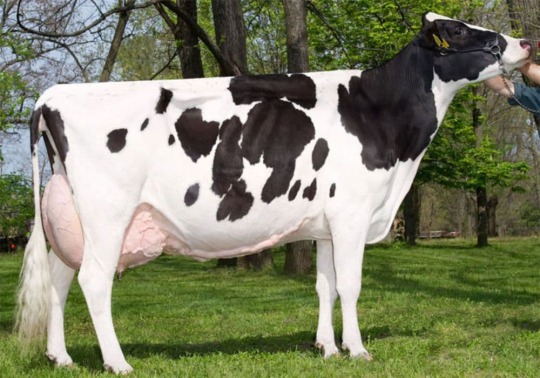
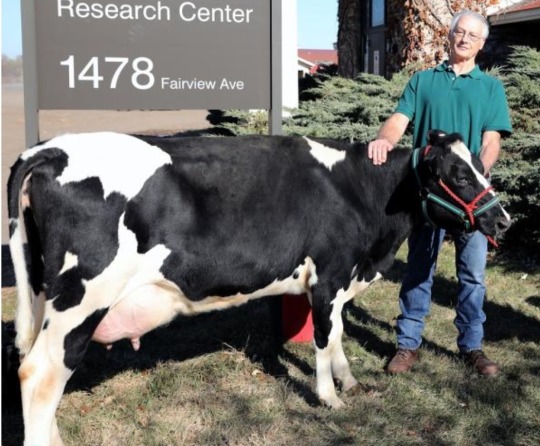
The way that the artery on the "modern" cow's belly runs to the udder like a big pink worm freaks me out the most ngl
The udder also bulges out from between the back legs
The show cow is so thin
And then compare these both to a Holstein-Frisian cross who leans more on the Frisian side;
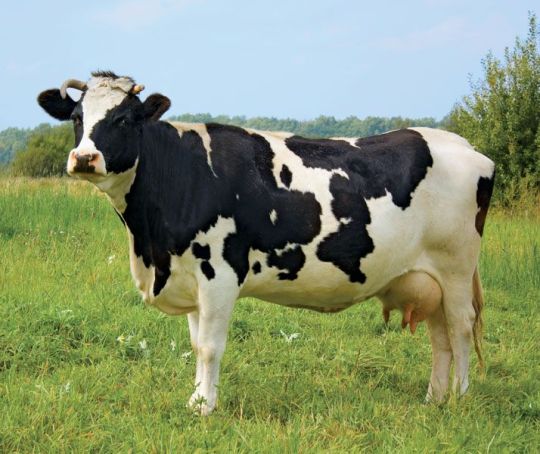
Proper weight, developed legs. Its biggest "problem" is actually just the udder shape-- deep udders, which "hang" low like that, aren't optimal for milk-focused breeds because the higher away from the ground the less chance there is of infection. In that department, the "unselected" holstein clearly outclasses the holstein-frisian.
But it probably won't be surprising to hear that the "show holstein," with its massive, swollen udder, is SUPER prone to infections such as mastitis.
But it is also just more prone to getting sick generally
And, to keep up with these insane demands, holsteins need a TON of food. You aren't going to just turn these things out into a pasture and be done with it. Even its ancestor the Frisian needed premium Dutch polder grass to be such a good cow-- crank that up to 11 with these Monuments to Humanity's Hubrice
The Texas Longhorn developed in semi-feral conditions and can eat a bush to become the best thing in a 10 mile radius. The Scottish Highland was iron-forged in upland moors with a steady diet of turf and rain.
Meanwhile if a Holstein has less than 5 homemade meals a day without poland spring bottled water it will die to death.
And the WORST part? You have to use these if you want to make money in dairy farming. It's WAAY too expensive to just run a suboptimal farm. Their milk isn't great, but they sure do make a lot of it.
...so Holsteins and Holstein-Frisians (and other "super efficient" breeds) have absolutely decimated heritage cattle. The American Milking Devon is a deep reddish brown with gorgeous horns and low maintenance; rare. Randall Linebacks are painted with lines of white speckles down the back and can be used for any purpose; critically endangered. The Niata was a pug-faced cow who could fight jaguars; extinct.
And THAT'S what makes me hate them most of all. I LOVE cows, but whenever I see a reference to one, it's a holstein. It's always boring black and white splotches with big pink udders. They're practically synonymous with "cow" when their homogeniety is actually hiding much cooler breeds from you.
Did you know cows can be tiger-striped?
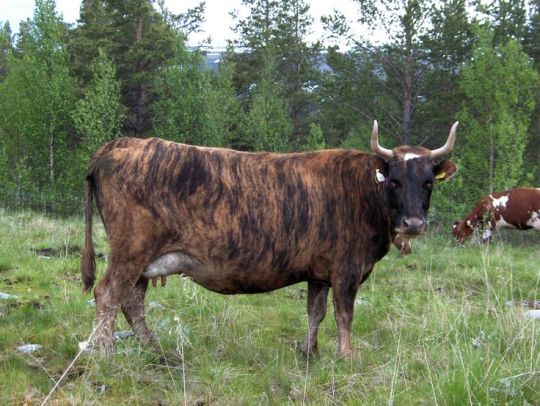
And that England has its own type of longhorn?

Or that cow horns can twist upwards like an antelope?
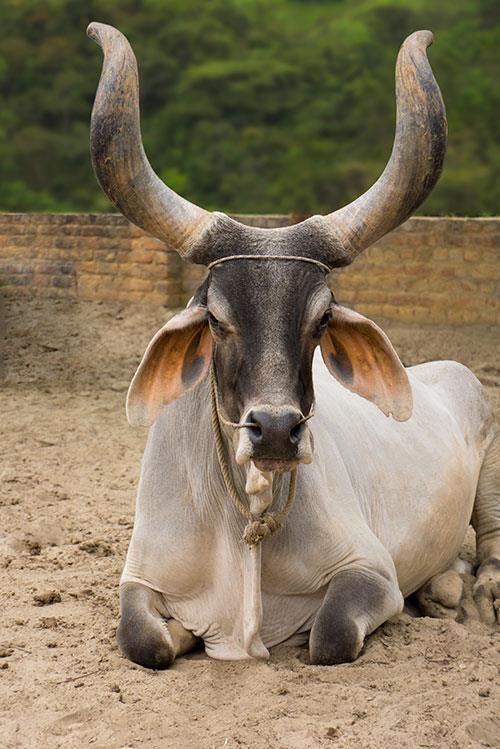
And that they can have REALLY LONG ears?
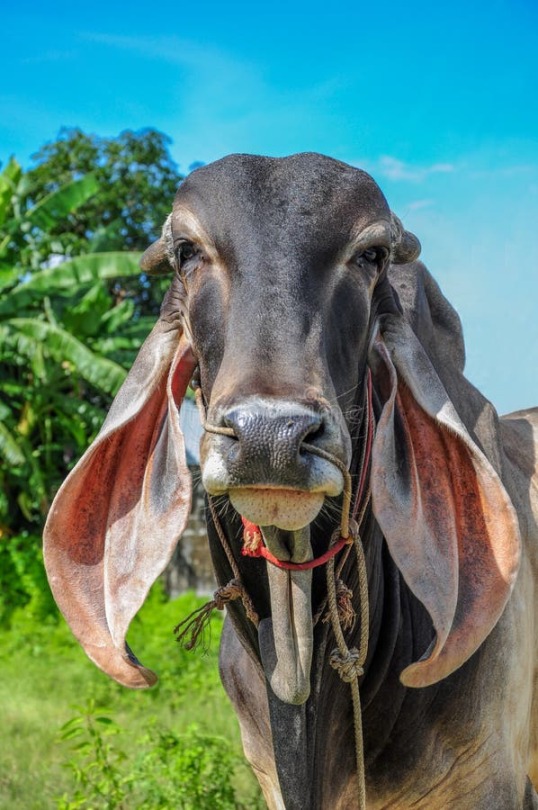
And that they can be blue?
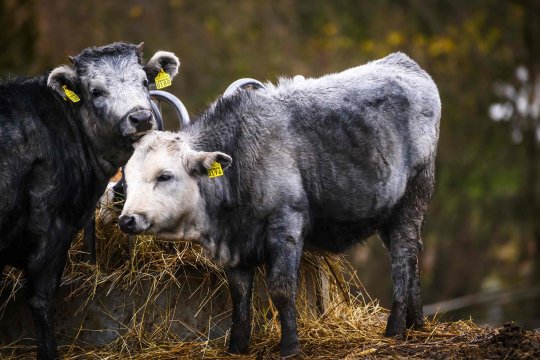
And that's not even getting into some of the cows that have gotten a small crumb of attention lately, such as Highlands, Ankole-Watusi, and Texas Longhorns. There's so many cool cows out there! And they're all really different from holsteins! MOST of them are also a lot healthier and produce tastier milk and meat!
TL;DR yeah i don't like holsteins and I like sniping at them. For reasons both legit and petty.
#Not wc#Cows#Yeens and cows are my favorite animals btw#Cows my beloved#Again kinda interesting it just never really came up until now? But this is a cat blog I suppose#But yeah cows are one of my special interests and have been for like... 10 years now
400 notes
·
View notes
Note
Imagine a scenerio
For the next 10 years all humans everywhere go vegan. How would the world benefit at all from that?
-End world hunger thousands of times over by using all the land dedicated to ag animals and animal feed for human use. Could also be used for housing. (80% of agricultural land is dedicated to livestock and livestock feed and since 90% of farm animals globally are factory farmed (99% in my country/USA), are fed mostly human-edible crops like corn and soy, and require 10 calories of plants to generate 1 calorie of animal food) This alone really should be the only reason people need, i mean its world hunger, just world hunger is all, but if you need more- -Huge reduction in child labor (animal ag has a lot of child laborers and a huge child laborer death toll as its a dangerous job in many ways from biohazards to insanely dangerous machinery that is literally designed to disassemble and debone freaking massive animals and yes children get sucked into them from time to time) -The amount of energy we would save and produce would be astronomical -Redirect those bajillions in subsidies back into crop agriculture and make our crops less shitty and maybe save or bring back some crop species from extinction (we have lost countless species of crops) or create new better crops -Water basin and soil quality healing and improvement
-Massive air quality improvement and co2 and methane emission reduction -Pollinators would increase as deforestation stops and honey farming would no longer happen (honeybee farming is a great threat to pollinators, honeybees are not pollinators and displace pollinators) -all the sanctuaries and people dedicating all their time to rescuing animals abused and rejected by the meat and dairy industry, pet breeding industry, animal testing labs etc could now focus on other things like maybe wildlife protection and rehabilitation or caring for human orphans which would just make the world a lot less shitty and sad. i fully believe we totally have the power to tame the wilds. we've already created plant based catfood with science and only like 4 percent of mammals are wild by mass, the rest are livestock. we have the power to make the world actually a paradise if we really wanted to. this would mentally benefit people who rightly think this world is shitty and violent and pointless to engage in, and when those people are happier other people would benefit too.
this is literally just off the top of my head, there are so many more reasons. this question gets asked a lot in r/debateavegan and on vegan world discord server, you can find people talking about all kinds of things you never would have considered
9 notes
·
View notes
Text

Halal Pastures Farm is a diversified organic farm located in the famous black dirt region of Orange County, NY. Farmers Samer and Diane firmly believe in sustainable agriculture and that soil health is the most important ingredient for producing a healthy crop. We recently chatted with Diane to learn more about their approach towards farming and the certified organic produce, eggs and pastured halal meats they offer.
How did Halal Pastures Farm get started? We started our farm out of a need to provide our growing family with wholesome food. Back in 2011, Samer read an article that Egypt rejected several tons of corn from the USA because it was genetically modified. That was the first time we heard of the word GMO (Genetically Modified Organism). We looked to our own faith to understand what kinds of food we are supposed to be eating. We discovered that, as Muslims, we are supposed to be eating food that isn’t just halal, but also Tayyab – which means wholesome, pure and good. We rejected GMO foods and wanted to feed our family wholesome food. Since we couldn’t find the food we needed to feed our family, we started making it ourselves.

Were you always farmers or did you have other interests and careers before becoming farmers? Diane is a lawyer and Samer is in finance. We are first generation farmers. Diane stopped practicing law to focus on the farm. We also homeschool our children. There is a statistic that 70% of farmers have income from a non-farm source, and we are no exception to that. Our careers helped support the farm and Samer continues to work his other job to sustain it.

As your name implies, Halal Pastures Farm produces halal meats and meat products. What does that mean exactly for those who aren’t familiar with halal? In Islam, halal just means permissible. If something is halal, it means it is permissible to do, consume or use. When it applies to meat, it means that the meat was slaughtered in accordance with Islamic rules.
What are your main flagship products? Our main products are halal meat, vegetables and eggs.

Do all your shoppers follow halal? Or do you have non-halal shoppers? Everyone shops from us [including people who are not following halal]. The common theme amongst everyone who buys from us is that they really appreciate good food made with intention.
Halal Pastures Farm is a diversified farm which means you grow a variety of crops and animals on a single farm. What are the advantages and disadvantages of this approach to farming? In terms of geography, our farm is spread out across Orange County. The crops that we don’t sell or are spoiled are saved and given to the chickens to eat. And we are experimenting this year with using the manure from our chickens as fertilizer for the soil in which we grow our crops. We also work with farmers throughout upstate NY who raise the animals organically and in accordance with their life cycle.

Halal Pastures Farm grows a lot of different types of fresh produce. How many different varieties of fruits and vegetables do you currently grow? We are currently growing around 600 varieties of vegetables and fruits. We try to grow varieties that are unique and different to what you would find in a supermarket. For instance, [this past summer] we grew a yellow pointy tomatillo called Chupon de Malinalco1. We grew an eggplant called Rosa Bianca2 and a tomato called Orange Strawberry3. We also grew a fruit called the husk cherry4 that people just loved. 1Chupon de Malinalco is an heirloom Mexican tomatillo that grows up to four inches long. It’s lemon yellow in color with a cone, slightly heart-shape and tapered tip. It tastes sweet and fruity with a slightly tart taste. It’s great for making salsas and can be enjoyed fresh. 2Rosa Bianca is an Italian heirloom variety of eggplant noted for being particularly creamy and tender. 3Orange Strawberry is a German heirloom tomato variety that produces large, bright orange fruit shaped like strawberries or oxhearts with a meaty flesh and sweet, rich flavor. 4A husk cherry, also known as a ground cherry, is a small, sweet fruit that grows in a papery husk. They are related to tomatoes and tomatillos. Their exotic, mild flavor has been compared to a cross between tomato, mango and pineapple.
You have an extensive network of greenhouses that allow you to grow through the colder months. Are your greenhouses heated or unheated or both? We have both heated and unheated greenhouses in which we are currently growing winter greens and spring greens including kale, chards, mustards and spinach. We overwinter our greens because it concentrates the minerals in the vegetables and makes them taste sweeter.

Halal Pastures Farm is a certified organic farm. Does this refer to all your products? Our produce and eggs are certified organic. Our meats are certified organic and/or 100% grass-fed and grass finished.
What are some of Halal Pastures Farm's newest products and value-added products? We have many new products that have come down the pike. We have introduced organic halal chicken bone broth, smoked organic chicken breast (its nitrate and nitrite free), tomato sauce, jams (strawberry, rhubarb, and ground cherry ginger flavors), pickles, tomatillo salsa, harissa, garden pickles and pickled beans.

What are some of your best-selling products? Thankfully, all our products do well. The eggs are a top seller right now.

What are some of Halal Pastures Farm’s plans for the future? We hope to one day purchase land that is large enough to house our full farming operation.
Is there anything else you’d like our shoppers to know about Halal Pastures Farm? We work really hard, love what we do and take our work seriously. We are loyal to our customers and hope to always produce food that is wholesome and good for them.
Thank you, Diane, for taking the time to talk with us and sharing more about your farming philosophy and operations. Find Halal Pastures Farm and their wide range of certified organic products and halal meats on Sundays year-round at our Park Slope Farmers Market and during the summer season at our Cunningham Park Farmers Market.
#farmersmarket#downtoearthmkts#shoplocal#eatlocal#farmersmarkets#localfood#eatdowntoearth#local food#agriculture#buylocal#halal meat#halal food
0 notes
Text
Russian companies are producing meat and milk substitutes and other alternative products
Producers of sausages and other plant-based premade and deli products speak out.

According to NielsenIQ, by 2030, the Russian plant-based food market will increase fivefold, and the total turnover will amount to 50-100 billion rubles. While the Russian Association of Plant-Based Food Producers is puzzling about how to help the industry in the coming years, we decided to talk to those who live and breathe it right now.

co-founder of Greenwise, a producer of plant-based food
How it all started
My father has worked in the food industry for over 30 years. He was the first to bring soy protein concentrates, which are used to replace animal proteins in products, from the US. Partner-M, a company founded by my father, is still in the business of processing plant-based raw materials.
Working for the company, I mostly dealt with legal issues but was also involved in analyzing production and market conditions. Six years ago, together with the marketing director, I went to the Netherlands to study. We were surprised and inspired by the eco-friendly approach both to food and life. We decided to launch the production of Russian plant-based products that any person can include in their diet.
We founded Greenwise company, where I, among other things, was engaged in developing formulations. Since Partner-M is a family business, I had access to the plant and raw materials. However, I still lacked knowledge about the food industry in the beginning. So I spent a lot of time learning all the subtleties and talking a lot to employees at production sites.
The first product I developed and launched was plant-based jerky. My friends and the specialists working for my father’s company tried it. They liked the product, so we decided to roll it out.
We carried out the first business analysis after going on a trip to Frankfurt to attend the Health Ingredients Expo. We did not even have a stand, we came only with suitcases full of samples of our jerky that we offered to other exhibitors. We came across the stand of ProVega, an international food tech accelerator from Germany.
ProVega’s director was surprised that Russians came with anything other than IT or defense technology. When we took out the samples, he said: ‘Cool, I am just about to have lunch!’ He poured jerky into the salad and asked us to tell him about ourselves. When he finished, he invited us to Berlin to take part in the accelerator program.

Now Greenwise products are available in more than 2,500 stores of VkusVill, Perekrestok, Azbuka Vkusa and other chains. We export products to Kazakhstan, Belarus, Armenia, Georgia, Japan, Australia, USA, Israel, Turkey, UAE and Saudi Arabia. We are going to develop and expand our product range.
Who is our customer
At first, our main target audience were flexitarians who prefer plant-based foods, but also eat meat and fish. Right now, we focus on anyone who wants a plant-based product without the label screaming ‘vegan’. We have the widest possible price range offering both expensive and affordable products.
What we offer is a new food category in its own right – like tofu or seitan – so our product is not just a meat alternative.
We work in several areas: we produce and sell ingredients for plant-based products, frozen and chilled semi-finished products: fillets ‘instead of chicken’ and ‘instead of beef’, plant-based minced meat, canned food and jerky.
As part of a partnership program with Yandex Eats, we also develop supplies to restaurants, mostly to non-vegetarian ones. We offer ready-made meals: rolls, shawarma, sandwiches, burgers, soups, mashed potatoes with patties made of plant-based meat. The company has launched Lenten, New Year and Summer lines.
About ten years ago it was hard to imagine that there would be soy, oat, almond and other plant milk on the shelves of supermarkets and in almost all coffee shops. They did not replace animal proteins, but consumers got a choice. It should be the same with meat alternatives, so we are trying to move away from the concept of comparing plant and animal.
Is it worth entering the market?
A good question. On the one hand, you can open a small company. For example, we can share our formulations for free with manufacturers who buy our ingredients and spices. Our raw materials are not as expensive as in the meat processing industry, since growing requirements are less demanding.
But the most important thing is to understand customers’ needs. For example, in Russia a plant-based kebab or barbecue sausages will do really well in the summer. But, of course, you need to think about what you will do next.
How the Russian market develops
The projects taking part in the acceleration program in Germany are 3–5 times ahead of the Russian ones in terms of demand and sales. Europe already has a ready legislative environment and a target audience.
We are trying to work through these issues, so we have established the Association of Alternative Food Products Producers bringing together all Russian market players. Together with our colleagues from Gorbatov Federal Research Center for Food Systems, we are developing national standards and have launched a working group at Rosstandart to form a correct naming procedure.
For example, we are trying to provide a framework for what can be called vegan products and what can be called vegetarian. We are holding events; we have launched a project with Samokat delivering service to test the sale of more than 40 products in various categories.

We would like the alternative food market to develop faster, and we need competent specialists. Therefore, in collaboration with ITMO University, we have developed the first educational program in Russia covering the plant-based food technology.

Director and co-founder of Ne Myaso (Not Meat) brand at Tashir Food
How it all started
Tashir Group, which I work for, comprises many companies associated with commercial real estate, manufacturing, restaurant and hotel business. In 2019, Tashir Food company specializing in developing environmentally friendly and healthy food was started. Upon studying the market, I realized that Russia is about five years behind global trends and would definitely catch up with other countries in the near future to become one of the market leaders.
For months I’ve been telling my colleagues that we needed to focus on plant-based products, but many of them did not understand the word ‘vegan’ at all. However, using figures and examples of other companies, I still managed to convince my partners to support the idea. This is how our company developed Ne Myaso, a line of plant-based products.
The innovative plant-based meats we make are not ‘vegan meat’, not flavored soy and not ‘pea and beet patties’. The idea is to make a convincing meat alternative. Textured soy protein and soy patties only vaguely resemble meat and can never be a real replacement for it. This product is essentially flavored soy flour.
Unlike ‘soy meat’, which is too different from real meat, innovative plant-based products are meant to recreate the amino acid and mineral profile of meat, and then achieve the desired structure, flavor and color.
Plant-based foods are not just a trend. This is a business featuring a distinct social infrastructure, a part of a specific agenda just like the ESG index. The industry offers many ideas that help make the world a better place.
Who is our customer
Women aged 25–35. They are not vegans but rather flexitarians.
Our customers are people who do not want to cut costs on food quality. The quality of the ingredients is important for them, and despite the high quality of our ingredients, our prices are still affordable. Consumers are ready to pay 500 rubles and more for our products, because they know we offer great value for money.
Is it worth entering the market?
Producing innovative plant-based products in Russia is a challenge. Sales throughout the year are unstable with a fall in summer and a rise in winter. This is something we cannot yet explain. Perhaps, the reason for the increase in sales in winter is Lent.
In the summer, people go to their summer cottages and switch to eating their home-grown vegetables, but these are just assumptions so far. In general, sales are growing year by year with a turnover of more than 25%.
However, in my opinion, the plant-based meat industry in Russia is not a good place for startups. It has to be a thought-out business within large companies and holdings. Greenwise boasts a plant-based protein producer Partner-M.
It is practically the only company in Russia to produce plant-based protein and make alternative meat from it. Tashir Food is a company within a large holding with different production facilities, so we, as a verified business, have more opportunities. For example, we can use the equipment of meat processing plants.
More importantly, any food project needs highly qualified technologists: to sell a plant-based product, you need to make it right. Customers read ingredient lists and want to see it clean, without ‘E number’ additives.
Making a flow process chart is not easy. Any mistake can cause the product to separate or layer. People will mention it giving their feedback. This can instantly affect reputation and sales.
Meat sausage is much easier to make than its plant-based alternative. There is no special equipment for plant-based products. Those are made using meat processing equipment, which is one of the most expensive. To build a production facility, we need to spend about 200–300 million rubles on equipment alone. This is a fairly large investment for a startup.
Our main competitor is meat – not other plant-based food companies.
Now we are building a new production facility at Podolsk-based food cluster. Our goal is to capture at least 10% of the market and sales in the meat category. This will prove the success of plant-based alternatives in the Russian food industry. I hope we will succeed.

General Director of Vyshy Vkus
How it all started
In the 2000s, vegetarian cafes and alternative foods began to appear in large Russian cities. But as supporters of a healthy lifestyle and plant-based diet, we were not very satisfied with them: taste and texture just weren’t the same. So we decided to start our own production.
We had some experience in the food industry albeit in the restaurant business. But still, it was food-related. We built a team and rented Solnechny Agricultural Complex in Krasnodar Territory featuring greenhouse and unleavened bread production facilities. We started making the first wheat protein products.
People need the food they are used to. In order to switch to a plant-based diet, there should be ‘soft’ alternatives that have the flavor of familiar foods.
First, we introduced our ideas into our own vegetarian cafes and restaurants. Then, we founded Vyshy Vkus company to launch mass production.

Now many meat processing plants are starting to produce plant-based products. For vegetarians and vegans, this approach may be unethical. If a customer follows a plant-based diet and does not want to touch meat either physically or ‘energetically’, then they simply choose other products.
How the Russian market is changing
Russia has no national standards for a plant-based diet yet. This has its advantages: we do not need to meet any requirements and can easily promote plant-based products.
Fifteen years ago, the word ‘vegetarian’ sounded like ‘alien’ to many people. Now vegetarianism is much more common.
We often visit international exhibitions, analyze markets of other countries and are happy to note that open-mindedness in this area is gaining momentum. If a person eats meat, this does not mean that they will not be curious about alternative foods. Conversely, a vegetarian will not argue with meat-eaters or try to convince them.
Russia is about five years behind Europe and the USA in the development of alternative products. But there is some progress: according to our analysts, sales of vegan products in the Russian market grow by 27–36% per year. However, the situation worsened after February 2022.
Is it worth entering the market?
It is quite difficult to make money in this market in Russia. The higher the production, the higher the profitability. The more plant-based products are produced, the cheaper they will be. However, few companies can provide strong output.

Those who want to launch their own production of plant-based products should make sure that this area suits them in terms of life philosophy. I would not recommend that someone go into this business to make money. If your values are more important to you than huge profit, then you are welcome to do as you please.
Large meat processing companies are now entering the plant-based sector. Still, the market is small: only 1.5% of Russians are vegetarians. Therefore, this business is easier for those who combine two types of production. But I believe that we should call a spade a spade, and not deceive consumers telling stories about ‘a bright future without meat and cruelty.
1 note
·
View note
Text





INSANITY - HAS - 2 - DO - WITH - THE - WEATHER
ENGLAND - RARELY - HAS - A - BRIGHT - WARM &
LONG - SUNNY DAY - EVER - WHEN - FORMER -
SERENE - PRINCESS - WED - 'SPARE' - AFTER -
MARRIAGE - HIS - ROYAL HIGHNESS - PRINCE -
HARRY - GREENEST - LAWNS - SAW - TV YES -
LIVE COVERAGE - 'FORSAKING ALL OTHERS' -
ABOUT - THE - MISTRESS - OF - PRINCE - YES -
THE - 1ST - 'ALL - OTHERS - NOT - FORSAKING' -
YEAR - 1500 - HAD NO - KING - YET IN FRANCE -
34 YRS - LATER
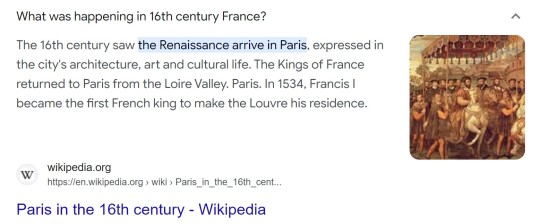
KING - FRANCIS 1 - MADE - LOUVRE - PARIS -
FRANCE - HIS - RESIDENCE - RETURNED FR -
LOIRE VALLEY - OVER - 2 HRS AWAY - 2 BE -
KING - OF - FRANCE - 16TH - CENTURY - FR
A - COUNTRY - 2 B - PROUD - OF - 2 B PART
OF - NO ONE - FR - PHILIPPINES - EVER FL
FOLLOWED - ME - HERE - BECAUSE THEY
PRODUCED - THEIR - FAMILY - THEIR - YES
CLASSMATES - NEIGHBORS - THEIR TRUE
DIALECTS - BUT - HISTORIANS - KNOW -
PHILIPPINES - NOT - CONTINUOUS YES -
EXISTENCE - THEY - ALL - DIED - AFTER -
67,000 YRS - LUZON - AND - VISAYAS SO -
5,000 YRS - CONTINUOUS - EXISTENCE
CHINA - FLED - 2 - LUZON - SKELATONS
EVERYWHERE - SINCE - ME - KNIFED -
SHOT - RAPED - NO - ONE - FR - THAT -
COUNTRY - FOLLOWED - ME - WELL -
TIME - 2 - GO - BACK - 2 - MY ROOTS -
EUROPE - CHINA - KOREA - ALSO KR -
FLED - 2 - PILIPINAS - AND - BEGAN -
AGAIN - PHILIPPINE - ISLANDS - AS -
MEDICAL - RACE
JESUS - SAID - U - JUST SHAKE - THE -
DUST - OF - YOUR - SANDALS - POINT -
FEET - 2 - THE - CITY - THAT - DON'T -
WELCOME - U - BETTER OFF - THAT -
THE - CITY - U - WERE - IN - NEVER -
EVER - EXISTED - THOSE - CITIES -
WILL DISAPPEAR - FR - EXISTENCE -
BRITTANY - WHERE - I'M - GOING 2 -
AS - DIRECT - DESCENDANT - OF -
SIR PATRICK HENRY
QUEEN - MARY - OF - SCOTTS
LAST KING LOUIS OF FRANCE
RELATIVES - OF -
KING ALEXANDER - ANCIENT - GREECE
JULIUS CAESAR - ANCIENT - ROME
TIME - 2 - MAKE - EUROPE - HOME
I'M - A - PROVINCIAL - PERSON - A
FARM - GIRL - LOVE - OUR - SEAS
OUR - FISHERMEN - AS - THEY FR
BRIG - US - SEAFOOD - CRABS
LOBSTERS - HUGE - FISHES - 2
EVEN - IN - PILIPINAS - RARELY
DID - ANYONE - TALK - 2 - ME 2
KILL - ME - WHAT - THEY - DID A
LOT - KIDNAPPED - ME - DID PH
MANY - THINGS - 2 - ME - BUT AS
PEOPLE - ONLY - CHILDREN - YES
TALKED - 2 - ME - THE - REST DID
THEIR - BEST - 2 - COLLECT - FRM
FAMILY - INSURANCE - $1 MILLION
DEATH - OF - EACH - CHILDREN AS
STARTED - BY - MOTHERS - GRADS
UNIVERSITY - OF - PHILIPPINES SO
BACK - 2 - EUROPE - AND - OTHER
ASIA - ONLY - BUYING - MAKATI - &
MINDORO - ISLANDS - 4 - ONLY THE
KIDS - OF PILIPINAS - TALKED 2 ME
BIG - SUSU - PIA - AND - CATRIONA
THEY - WORSHIP - AND - ADORE - 4
NO ONE - CONGRATULATED ME -
5 GOLD - MEDALS - IN - EUROPE -
BUFFET - IN - MIAMI - EVEN - AS -
HOMELESS THEY DON'T KNOW -
ME - CLEAN - THEIR - FLOORS -
1,000 - A MONTH - UNFURNISHED -
KNOWING - SSI LESS - THAN THAT -
BRITTANY - FRANCE - WORLD's OLDEST -
STANDING - ARCHITECTURE - PILIPINAS -
BIG SUSU - BEAUTY PAGEANT WINNERS -
MS UNIVERSE - 2018 - CATRIONA GRAY -
$250,000 - NO - CROWN - ONLY - RENT -
UNITED STATES - 'U - GET - WHAT - YOU -
PAID - FOR' - NATURALIZATION - NUDE -
IN - FRONT - 2 - IDENTIFY - GENDER - & -
DEADLY - DISEASE - PEEPERS - AS USA -
MORE - THAN - 1 MILLION - DEAD - FRM -
CORONAVIRUS - COLDS - COUGH - AND -
FEVER - AGE 245 - MEDICAL - EXPERTS


KING LOUIS XIV - WAS - ONLY - AGE 5 - SUCCEEDED -
HIS - FATHER - LOUIS XIII - RULED - 72 YRS - MAKING -
HIS - REIGN - THE - LONGEST - OF - ANY - EUROPEAN -
MONARCH - USA - MISS UNIVERSE - REIGNS - 1 YEAR -
HER - BEAUTY - AND - LARGE - SUSU - BY - JUDGES -
ALWAYS - 2 BLKS - 1 GAY - AND - OTHERS - THIS KING -
OUTLIVED - HIS - SON - AND - GRANDSON - GIVING -
HIS THRONE - 2 - HIS - YOUNG - GREAT - GRANDSON -
LOUIS XV - ALSO - AT - THE - AGE OF 5 - HOW - COOL


GOOGLE - SEARCH - KEEPS - CLOSING -
ALL - THE - ARROWS - I - OPENED - TO -
GIVE - ME - INFORMATION - ON FRANCE -
GOOGLE - ANTI - FOREIGNERS - AS - USA

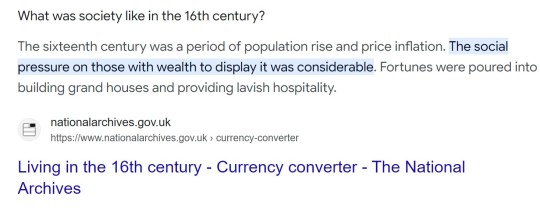

ROBUST - CUISINE - OUTDOORS - MEATS - CHICKEN -
AND - SEAFOOD - FULL - FLAVORED - GOD's - TRUE -
GOODNESS - INTO - THE - KITCHEN - MACHEREL -
SARDINES - PORK - RILLETTES - ENGLISH - YES -
PANCAKES - APPLE - CIDER - FRENCH - CREPES -
ADD - A - DASH - OF - SWEETNESS - SOUNDS FR -
DIVINE - PREPARING - 2 - GO - 2 - MIAMI BEACH -
FREE - SHOWER - JUST - 35 MIN - AWAY - WILL B -
BACK - JESUS - IS - LORD - FOUND - HOME -
AGAIN - LEAVING - TYRANTS - OPPRESIVE -
BORN - IN - PHILIPPINES - 2 - WHAT - TRUE -
PURPOSE - 2 B - BORN - 2 - SING - & DANCE -
BACK - HOME - ENGLAND - IN - FRANCE -
BACK - 2 - BRITTANY - FRANCE - 'JOLLY -
ENGLAND' - IN - FRANCE - BACK HOME -
4 - SMALL - EUROPEAN - COUNTRIES -
ALWAYS - WELCOMED - ME - AND MY -
PHILIPPINE - UNIFORMED - MAID - SO -
BACK - 2 - EUROPE - AND - OTHER -
ASIAN - COUNTRIES - AS - HOME 2 -
'HOME - SWEET HOME'
AS - A - WRITER - WILL -
SHARE - MY - FULL OF -
MY - BLOOD - SHED - HERE - MIAMI -
MY - BLOOD - SHED - IN - MAKATI 2 -
SHARING - MY - LIFE - ON - EARTH -
WRITING - A - LOT - AT - BRITTANY -
FRANCE - CAN'T - WAIT - 2 - MEET -
MY - MALE - DOCTORS - IN - CHINA -
ACUPUNCTURISTS - AS - I - BECOME -
THAT - 2 - IN BRITTANY - FRANCE FR
1 note
·
View note
Note
(Sorry if something is off. English is my second language and is also almost all self learning)
(VIVA COLOMBIA, VIVA FALCAO!)
Well, South America/Mexico has a lot more than just avocado.
*Deep inhale* sit down, it's long even if I'm going to give you a resume.
Okay kids, we're learning now about South America and how it is amazing (watch Encanto again for the vibes)
We're talking about products like agriculture (coffee, fruits and meat), medicine (this one I'm referring to Colombia, there's a lot of studies and investigations for illness and producing antibiotics, but I'm not really an expert in the topic), water resources (three of the largest river basins in the world -Amazonas, Orinoco and Río de la Plata- and with the Guaraní aquifer, one of the largest bodies of underground water. 26% of the world's freshwater resources are on this continent, where only 6% of the world's population resides.), mining (South America is rich in minerals such as copper, gold, silver, iron ore, lithium, bauxite, zinc, lead, tin, and uranium) and even entertainment (Shakira, Mark Anthony and Juan Luis Guerra).
Also, south America is called "The world's lung" for a reason, protecting it is necessary to counter the pollution caused by big companies around the world (there was a project where international companies reforestation trying to reduce their impact)
Aside, the flora and fauna in the Amazons is one of the biggest in the world, a lot of endangered species are protected by south America's governments/people.
Soo, maybe if it was just one country it wouldn't cause a failure, but ALL of South America? Is probably a big deal without talking about the international debt.
Now, talking about relations between country.
https://overseas.mofa.go.kr/co-es/wpge/m_6686/contents.do#:~:text=Colombia%20es%20el%20%C3%BAnico%20pa%C3%ADs%20latinoamericano%20que%20envi%C3%B3%20a%20sus,escenarios%20internacionales%20incluida%20la%20ONU.
(this link takes you to the South Korean embassy in Colombia page)
South Korea and Colombia are very friendly, even having a TLC to facilitate the international trade since 2016. In 1951 Colombia was the only South American country that sent help for the Korean Wars and both countries are known to be each other's support in international affairs or at least be neutral.
So I don't really think they'd see it as a debt so big as much as helping a known friendly ally that is better to have that loss when it doesn't cost you much.
Now, South America's pride?
A big, BIG deal.
We're normally pretty friendly if you don't try to make us look bad. If we think we can deal with it alone? No way we're accepting someone to just come and solve all of the problems
Historically, USA and Europe had a big impact on our laws and our culture, but we tried to treat everything like a deal (yes, USA told us to change our labor laws, but it is because we have a deal, not cause you told us it is the right thing to do- USA had a big impact on the Ley 100 de 1993, used right know in Colombia- Again, I'm talking about Colombia cause I don't know so much about other countries to call myself an erudite about South America, is too big and I'm just a law student). So probably we'd do a Jeju Island deal and ask for support.
Now, USA would jump first, I have no doubt about it, there's a lot of money involved between us for they just lose it all when they have Thomas that can help.
But hey, it would be pretty funny to see Jinwoo dealing with someone trying to put honey in his chicken or giving him aguardiente as a gift.
100% would laugh at him being uncomfortable when he learns we kiss each other's cheeks as hello/goodbye if we like the other person.
(Jinwoo trying soup with banana inside the soup. Jinwoo trying chocolate with cheese for breakfast. Jinwoo asks himself why we talk so loud or how come that half of the time everything is an excuse to throw a party. Jinwoo dealing with the fact that we're making him a meme the second he puts a foot on the ground)
Now I'm invested 🤣
Imagine if South America/Mexico got hit by an S rank gate, what would be the world wide repercussions of the avocado industry going down? Would people beg Sung Jinwoo to clear it? Would he already be on his way as soon as he hears about it?
I don't think avocado is big enough to result in people begging Sung Jinwoo to clear it per say. A polite invitation from the avocado cartel? Sure - but I think the Korean Hunter Association filters out such requests before it would even be sent to Jinwoo and his guild lol. Plus there's S ranked Hunters in South America too! I think people would look to their local hunters first for help - and for domestic pride too. It's kind of embarrassing to be needing to request foreign aid plus what kind of compensation can the countries really provide when they have already been decimated by such a gate? They can't afford it nor afford to own a favor. That's a pretty risky political position to be in, to say nothing else of the geopolitical implications and existing alliances they have to balance.
If this was a staple crop like a wheat, rice, or potato where it would be a catastrophic failure, sure. But the good news is that staple crops are far more diversified in where they are grown so while one region getting hit raises prices (cough see Ukraine war, wheat, and fertilizer), it's not going to result in massive shortages akin to the toilet paper crisis of 2020. Avocados are a large export item. The United States is the number one market for Mexico's avocado exports, with an 81 percent share, followed by Canada, Japan, and Spain, so I think the first foreign hunters called in to help would be the American guilds. (Plus they would be more personally motivated to keep their supply of guac going.) Koreans? I don't think they are as keen about avocados.
#sung jinwoo#solo leveling#solo leveling ideas#tywin lannister x sung jinwoo#game of thrones#tywin lannister#Spotify
59 notes
·
View notes
Note
Can you help me please? I'm sure you had an English translation of Matthew's interview with Style Italia (2017?) on your blog however I can't find it. Can you help? Thank you. A Goode fan x
Hi Anon - yes of course. This one right? ⬇️

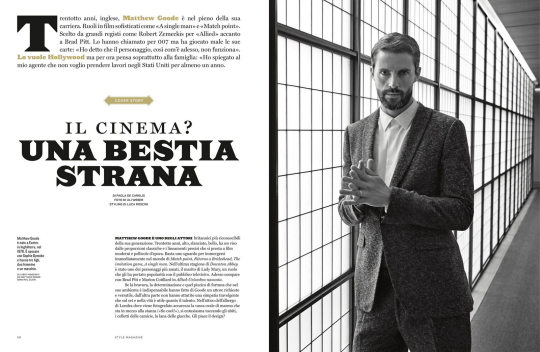


It's such a great interview with some lovely personal details from Matthew. @di-elle kindly did a translation for the matthew-goode.net press archive a few years ago so that follows ⬇️. Enjoy. : -
Matthew Goode is one of the most recognizable British actors of his generation. 38 years old, tall, slender, handsome, with a face composed of classic proportions and precise features that lends itself to both modern settings and period dramas.A look that’s allowed him to dive immediately into the world of Match Point, Brideshead Revisited, The Imitation Game, and A Single Man. In the last season of Downton Abbey, he was one of the most beloved characters as Lady Mary’s husband, a role that brought him popularity with the television audience. Now he appears with Brad Pitt and Marion Cotillard in Allied.Skill,talent, determination and a bit of luck (essential in this business) have made Goode a sought-after and versatile actor, without affecting his overwhelming pleasantness and playfulness onset and off that serve as useful talents as well.In the penthouse of the London hotel where he is being photographed, he strokes the oval marble bathtub sitting in the middle of the room (‘So cool!’), gets enthusiastic by touching the clothes, the collars of the shirts, and the wool of the jackets.
Do you like design?I love it, even if it is my wife who has the eye for it.In front of the mirror, in the barber’s and makeup artist’s hands, he is a bundle of energy. He is worried about Brexit (‘What’s happened? Where are we going?’) but happy to be able to buy a house. He is a little anxious, too, about the last phone call from his bank: ‘Being an actor means living day by day. Banks don’t like it.’
Psychologically what does it entail?During dry spells you can lose confidence and believe that you will never work again. It’s not easy.
However you are not lacking jobs. How was working on Allied?Movies are strange beasts. You come, you spend two days on the set, you shoot your own scenes and you go. Despite this it was electrifying as it can be a film of these proportions. There was an atmosphere of great professionalism and harmony. Brad Pitt is a great person. He welcomed me fondly, as did Marion Cotillard. I had already met them both, but they are always like that, even with those they don’t know.
Is variety important to you?It’s the essence of life, isn’t it? At the end the face and the voice are always those and if you specialize in a genre, it’s not easy to come out of it. It’s hard for me to resist period movies, it’s a great temptation. Costumes and interiors have a very strong charm.
Your name was made for the Bond role…I’ve sabotaged myself. Barbara Broccoli (the film producer) called me and I didn’t realize it was an audition. I thought it was just a chat. She asked me what I thought of Bond. I was honest , I told her that the way it is today doesn’t work. They need to scale down the budget, and make the character more complicated, go back to the origin from the books: a dark, difficult, incomprehensible man. At the end she said goodbye and I didn’t hear from her again. Maybe sometimes it’s better to keep your mouth shut.
Do you like going to movies?There’s a little bit of jealousy to overcome but generally yes. I’d like to see Tom Ford’s new movie, Nocturnal Animals. He is a genius, he has an eye like no other. A Single Man should have won more awards. Ford was born as a stylist but he is a real artist.
Are you not tempted to move to the USA?I have three children and I want them to grow up here. I don’t like to go too far away. I told my agent I don’t want to work in the US for a year.
Is Matthew Goode a good father?It depends on the days. The noise stresses me. If there are two children crying, or screaming, I panic. In those cases, my wife takes care of it.
What do you do at home?I cook. It’s less tiring than playing with a one-year-old child… I can do a little of everything: my father taught me the first recipes when I was about to start university. Over the years I have made a leap in quality, from scrambled eggs to stews.
Your best recipe?Beef and Guinness stew. Two or three parsnips, a couple of carrots, two onions, some mushrooms. Two pounds of meat, a little flour. Mix it up, then slap it in the pot. Salt, pepper, some herbs and some beer. I love it. You put it on, you go get the kids from school, and when you come back, the house smells of dinner.
The role you’ve always wanted.Sherlock Holmes. Damn it, Benedict Cumberbatch has stolen it from me! Joking aside, it’s Jeffrey Bernard in the comedy Jeffrey Bernard is Unwell, by Keith Waterhouse. Many years ago I saw Peter O’Toole in it and I’ve never forgotten. But you need to be 50 or 60 years old for it, so I’ll have to wait a little longer.
Did you want to be an actor as a child?My mother would say yes. Actually I discovered my path later in life. For a while I wanted to be an archaeologist, because my father was a geologist. One day one of my university mates went to audition for an acting school and I said: Why not, I should try it too. Finding an agent was a stroke of luck. Then the fight for survival began. It’s a slow and complicated road.
From the outside you look like someone who made it.(It may look that way) now, but like with everything when you start you are at the first step, you look up and say: I’ll never get there.
What’s your secret to overcome difficult moments?I have stopped watching the films I make. This has helped me a lot. You can’t control how they cut and edit your character. You can only control the experience, what you give and what gives to you. The result is almost insignificant. After a few years it can be fun watching yourself because you seem very young.
Do you practice sport a lot?I go to the gym in the morning, to start the day well. Twice a week I go out for lunch with my wife: and since I like to eat, and occasionally even drink, the gym is imperative. I also play golf but it takes time, it’s not an activity that fits well with a big family.
Your ideal holiday?I have fond memories of my childhood, camping with my father, the fishing rod, the green. I’d like to take my children. My wife resists for now.
What do you read?I hate to admit it, but I read very little. By the time I go to bed, I’m too tired.
A luxury?We’re planning how to sort out the house. If I could afford it I’d buy one of those enormous american washing machines with a tumble dryer. It’s not what you’d expect from a star, is it?
#matthew goode#asks#press archive 2017#a discovery of witches#adow#just in case adow fans are interested
34 notes
·
View notes
Text
Worldbuilding Tips: The Five Visitors
You’ve done it. You’ve come up with an idea for your fantasy world, but right now it’s mostly curb appeal and decorations without much else. So, you have the skin and flavor of your fictional world, but what if you’re having a bit of trouble coming up with the meat needed to make your world juicy and delicious? Well, I have a little game that can help flesh out your world.
Imagine a ship or whatever other kind of vehicle arriving on the shores or outskirts of your fantasy land and from that vehicle emerges 5 people from our own mundane world: a historian, an economist, an anthropologist, a diplomat, and a cartographer. There are some other visitors, but these are going to be the most universally beneficial.
The Historian:
This person is going to be interested in the backstory of your world. They don’t need to know every minuscule detail (though they wouldn’t turn that much information down) and just a general overview would be much obliged. Many fantasy worlds such as Tolkien’s Middle Earth and Martin’s Westeros are far more rich and interesting due to the amount of effort put into crafting their world’s histories. If you’re stumped, look to real world history for inspiration. It doesn’t even need to come from the middle ages so long as it works for your story. You should be able to answer questions like: How long has the dominant civilization been around? What are the biggest defining moments in your world’s history? What things are common knowledge that every child is expected to learn (such as George Washington being the first president of the USA) and which stuff is known more by historians and social studies teachers? And as you’re discussing the rest of the visitors, think back on how the answers you give would impact the historical aspect.
The Economist:
You don’t have to know the exact cost of every single thing in your world, but have a good guess. Be able to at least have a scale of price. If someone can buy a loaf of bread for 13 of your world’s currency, but a house costs 17, that would mean that either that bread is very expensive, that house is very cheap, or each unit of your currency is equal to a lot of real world money. Whatever you use to refer to your currency, keep not only price scaling in mind, but economics. If you have a port city, there’s going to be a lot of merchants in that area. The first primary export you’re likely to see in such a port town would be seafood, but also keep in mind the things that are closet to that port, as well as the climate. Greece for instance is a very rocky and mountainous country, so while they can grow crops, they would not have been any match for medieval French Aquitaine, the crown jewel of medieval farming territory. It’s also worth remembering that food in the middle ages was far more valuable than it is today. There was an old saying that wheat is worth its weight in gold. It was southern France’s bountiful soil that caused it to become one of the richest and most coveted territories in medieval Europe. So, keep in mind where resources would come from and where they would need to go, as well as trade that would be useful. A seaside farming town might not have any good access to raw minerals, while a city in the frozen mountainous north might not be able to grow crops, but are bountiful in minerals. The correlation of supply and demand now opens a vital trade route between them. This becomes more complex when the topic of war comes into play. The kingdom that supplies your crops and food is at war with your oldest ally. Now there’s a dilemma between having enough food to feed your people, or betraying the trust of a long time friend. Now your world building can be used as a part of your drama and narrative tension. The economy also impacts culture. What is considered a display of wealth, or is a common status symbol? What are the living conditions of the poor, the working class, the rich, and the aristocrats? Is there upward mobility? In the middle ages, you were what you were for the most part, especially serfs: peasants tied to their land. It was illegal to leave your territory, but there was a saying in the middle ages that “city air makes you free” that once a serf made it to a city, they’d be free of the life they’ve escaped.
The Anthropologist:
Every society has a culture. The way they act, think, dress, believe, talk. It’s all impacted by culture. Beliefs tend to be tied either to what has come before, or based on the world as observed. While many modern fantasy pantheons are based on ancient Greece, it’s not the only model to live by. In a loose interpretation, religion in it’s earliest stages was a rudimentary science used to explain why things happened. A culture that developed along rivers, sea coasts, and other popular trade routes are far more likely to be diverse melting pots due to the frequent traffic of people coming and going, and the common sight of foreigners choosing to set down roots. Meanwhile, a more out of the way and isolated culture is far less likely to have widespread cultural diversity. Tying back into history, a country that has experienced a number of successful wars may tend to think of themselves as invincible, or may try to police the issues of other countries, assuming they’re always on the right side, or that they can’t be defeated. The same culture may ask a high price of any other culture that asks them for militaristic support. Ask what things your people value, be they material or abstract ideals. However, try to refrain from creating a Planet of Hats, a trope often seen in Star Trek and similar Sci-Fi shows and even some Fantasy stories where everyone of a single race all have mostly the same skills, interests, personalities, and roles in the global culture. This is also the time to start thinking about myths, legends, folk heroes, and historical people and events worth celebrating, as this may be when you start to craft holidays or celebrations. This could also lead into discussing religion, and the gods or lack there of that might be celebrated by your culture. How does your society reflect itself in art, music, literature, dance. Does the way someone dresses tell you something about their place in society? Some taboos come from simple logic. The reason it’s frowned upon to eat a cow in India is the same reason it’s immoral to eat horse in western culture. Both are beast of burden livestock worth a lot more alive than dead. Cows produce milk, a source of nutrients and health. Horses are strong and were used in just about everything from plowing fields to pulling entire families or communities a great distance. Horses even became status symbols, as even in modern culture, owning a horse or pony is still considered to be (largely) a snobby rich person thing. Understanding not only what your people believe, but even just a vague idea why they would believe it is a vital aspect.
The Diplomat:
As this landing party is your fantasy world’s first contact with our own reality. How would they react to the newcomers? If there’s more than one society in your world, how would each society, country, kingdom, race, etc. react to something completely foreign? Would they try to forge an alliance? Open trade negotiations? Declare war? Prepare a feast? How would they feel about the way we dress? act? talk? How would they react to different levels of progression in technology? Could an unbiased third party from our world help two feuding sides come to peace with one another? How would they feel about knowing of a world beyond their own? Are there actions or behaviors acceptable in our own society that are considered offensive to them?
The Cartographer:
Although it’s not necessary that all fantasy worlds have a fully designed map, it is a good idea to have at least a rough idea of where things are in relation to one another. This can tell you about climate, resources, wildlife, natural borders, natural disasters, food chains, and more. It’s worth at least taking a crash course in understanding how geographical biomes tend to be laid out in order to make your world feel more real. Some authors claim that a world map is the single most important feature, others say it’s not that important. Frankly, trust your gut based on the kind of world you have. You may need a map, you may not. It really depends on the size and scope of your world. For instance, with Disney’s
Zootopia
, the entire world doesn’t matter. The audience doesn’t need to know where in the world Zootopia is, or what climate or biome it’s in. Zootopia itself is the world being built, and the separate districts and biomes of the city explain the world that’s being focused on.
Secondary Visitors:
They may still be important to your world, but are less likely to be universally helpful to all people.
Biologist: if your world has creatures beyond those found in our real world, it may be worth exploring how their bodies work on a more scientific level in order to give more realistic weight to their supernatural abilities.
Linguist/Translator: If you feel compelled to come up with a language no matter how basic or complex, it may be worth while to consider the problems with communication. this may also extend to unique idioms, colloquialisms, and slang native to your fantasy world.
Teacher/Scholar: Regardless of whether or not there is a formal education system in place in your world, a teacher may be interested in how knowledge is passed down, and what information the culture might have that would be unknown to people of our world. Whether that’s how to keep a wild animal from charging you, to knowing how to forge a mineral that exists only in your world, being able to readily answer questions is generally considered to be a good thing.
Healer: There may be healing spells in your world, there may not, but most fantasy stories tend to involve either action or adventure, both of which tend to cause fights. And since fights tend to lead to injuries, it’s important to know what can and cannot be treated, and how readily available these healing abilities are to the public.
5K notes
·
View notes
Text
Pluralistic: 11 Mar 2020 (Saturated fat and obesity, which foods produce satiety, spying VPNs, Twitter's research-friendly terms of service)
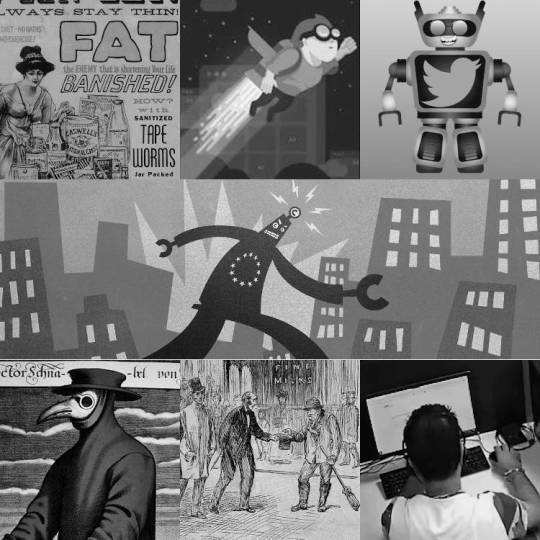
Today's links
Obesity and unsaturated fats: Blaming unsaturated fats for obesity is very plausible, but likely wrong, alas.
The satiety index: Which foods cause or satisfy cravings?
Sensor Tower's VPNs and adblockers spied on users: Like sneaking laxative into Immodium.
Twitter's new Terms of Service help academics: Good bots welcome.
Italy's "I Stay in the House" law: The comprehensive quarantine plan.
Scam-buster hacks into a scam-factory: He gets their CCTVs, recordings of their calls, transaction data, Whatsapp chats, and more. Delicious.
Postmortem: the catastrophic EU Copyright Directive. Testimony from yesterday's Senate hearing.
Podcast: A Lever Without a Fulcrum Is Just a Stick: My latest Locus column, on how copyright failed artists and enriched corporations.
This day in history: 2010, 2015, 2019
Colophon: Recent publications, current writing projects, upcoming appearances, current reading
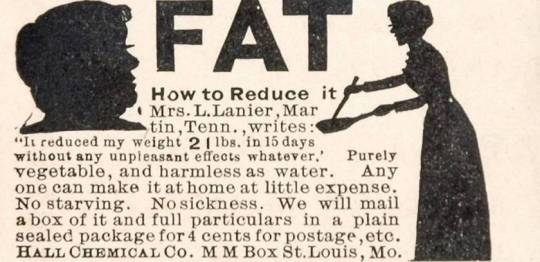
Obesity and unsaturated fats (permalink)
Scott Alexander does a very deep dive into the literature on diet, weight, and saturated vs unsaturated fats.
https://slatestarcodex.com/2020/03/10/for-then-against-high-saturated-fat-diets/
The most important elements for me were first, the validation that something really has changed: average US adult men's weight went from 155lbs to 195lbs from the 1800s to today. The 90th percentile 1800s man weighed 185lbs, today, it's 320lbs. US obesity rates in the 1800s were 1%. Today, they're 25%.
But the usual culprits can't explain the change: they ate more bread and potatoes in the 1800s, for one thing.
In China, obesity rates were very low even with a diet dominated by white rice.
1970s France had 1800s US obesity rates, on a diet of "baguettes, pastries, cheese, meat. Lots of sugar, white flour, and fat."
It's true that some tactics (intermittent fasting, low-carbing) work for some people, but they're not what worked in 1970s France or 1800s USA. So if those things work, they're "hacks" – not an indictment of carbs or eating three meals a day.
There's a widespread theory that the change is driven by the switch from saturated to unsaturated fats, which was driven by spiking heart disease in the 1950s. It's likely this heart disease epidemic can be attributed to the vast increase in smoking a couple decades earlier, but the tobacco industry's denial machine meant that the blame fell on diet, and the US (and then global) diet's fat composition shifted dramatically.
We ate a lot fewer animal-derived fats and a lot more plant-derived fats. These fats had lots more Omega 6s and (to a lesser extent) 3s, and the ratio of these Omegas also changed dramatically, both in our diet and in our bodily composition. Intriguingly, these play a significant role in metabolism. There's a plausible ring to this whole business – particularly as a way of crisping up what we mean when we say "avoid processed foods." What is "processing?" Maybe it's doing something that requires vegetable fats.
Unfortunately, neither the literature nor the lived experience of experimenters support the theory. Studies don't support it. Meta analyses don't support it. Reddit forums skew heavily to people saying it didn't work for them (dotted with people for whom it did).
Which makes weight gain a mystery. It can't be (just) exercise: we're exercising more now than we did 40 years ago, and we're heavier now. Studies about causes are inconclusive overall, but clear that weight gain is more explained by diet than exercise. What's more, we're seeing weight gain in lab rats, pets and feral animals, so exercise seems an unlikely culprit here.
Alexander ponders other possible causes: plastics or other contaminants in our diet, or that it's a "ratchet" (once your weight set point changes, it doesn't change back.). Both have little evidence to support them.
He concludes that he's "more confused than when I started it," but will avoid unsaturated fats where possible, with the exceptions of Omega-3 rich oils (fish/olive oil).
I am likewise confused, but also better-informed than I was before I read his post.

The satiety index (permalink)
I lost ~100lbs in 2002/3 with a low-carb diet. The thing I immediately noticed when I started eating (lots) more fat and (lots) less carbs was that I was always satiated, with none of the food cravings that had plagued me all my life.
No other diet since has had that effect. I really struggle with cravings (and have put 50lbs back on through my 40s, though some of that is muscle from a much higher level of exercise). For me, satiety is the barrier to sticking to any diet. I don't just get ravenous, I get these all-consuming cravings that I can't put out of my mind, even if I resist them (and the longer I resist, the more likely it is that I'll really blow it out when I give in at last).
So I was really interested in this 1995 open access study, "A Satiety Index of common foods," which offers a league table of the foods that made subjects feel full.
https://www.researchgate.net/publication/15701207_A_Satiety_Index_of_common_foods
The meaty (heh) parts are in these charts on pp682-3.
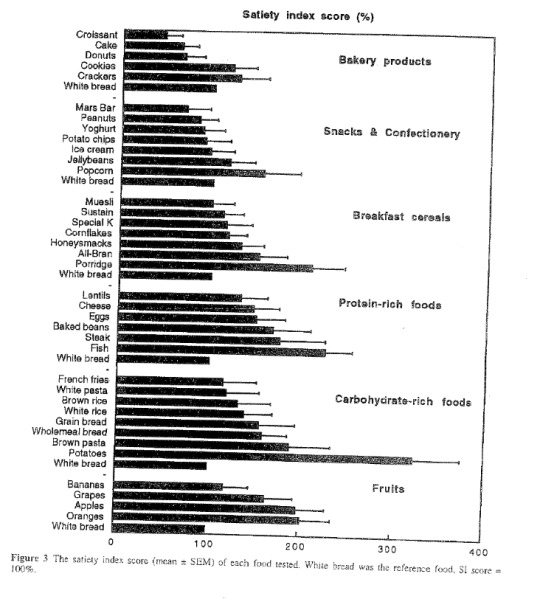


Sensor Tower's VPNs and adblockers spied on users (permalink)
Sensor Tower, a company that made apps billed as privacy-protecting, installed man-in-the-middle certificates on your devices that let them spy on everything you did online.
https://www.buzzfeednews.com/article/craigsilverman/vpn-and-ad-blocking-apps-sensor-tower
They made 20+ VPN apps for Android and Ios, but didn't disclose that all those apps were owned by analytics company, Sensor Tower. The apps had names like "Free and Unlimited VPN, Luna VPN, Mobile Data, and Adblock Focus."
The apps installed a "root certificate" in users' devices. With this cert, the company could insert itself in all the device's otherwise secure, encrypted sessions – web browsing, email, etc. Sensor Tower admits that they collected data using this cert, but insists that it was "anonymized," which is something most computer scientists agree is likely impossible for this kind of data. Re-identification of anonymized data is devilishly hard to avoid.
The claim is made even less credible when you listen to the company's other claims about its practices, such as the idea that they hid the authorship of their apps "for competitive reasons."
Or this howler: that "the vast majority of these apps listed are now defunct (inactive) and a few are in the process of sunsetting." Well, yes, they were removed for violating their users' privacy. It's not like the company had a change of heart or anything.
And then there's this: "Apple and Google restrict root certificate privileges due to the security risk to users. Sensor Tower's apps bypass the restrictions by prompting users to install a certificate through an external website after an app is downloaded."

Twitter's new Terms of Service help academics(permalink)
Twitter just published a new, and much-improved developer policy, one that permits academics to field bots for research and auditing purposes.
https://blog.twitter.com/developer/en_us/topics/community/2020/twitter_developer_policy_update.html
"Researchers will be able to share an unlimited number of Tweet IDs and/or User IDs, if they're doing so on behalf of an academic institution and for the sole purpose of non-commercial research, such as peer review."
https://techcrunch.com/2020/03/10/twitter-rewrites-developer-policy-to-better-support-academic-research-and-use-of-good-bots/
Twitter's also creating a bot registry that must include contact info for the botmaster, so that "it's easier for everyone on Twitter to know what's a bot – and what's not."
https://developer.twitter.com/en/developer-terms/policy#4-b
Italy's "I Stay in the House" law (permalink)
The FAQ for the Italian government's "I Stay In the House" decree is a fascinating document:
http://www.governo.it/it/articolo/decreto-iorestoacasa-domande-frequenti-sulle-misure-adottate-dal-governo/14278
Most notably, Italy has kicked out its tourists. As Bruce Sterling writes, "It's a tourist-ectomy. An Italy devoid of all tourists. It's fantastic, unheard-of. Surely this hasn't happened in at least 700 years."
https://www.wired.com/beyond-the-beyond/2020/03/stay-house-decree/
People are allowed to go to work, to shop, and to run errands, provided it is for an "essential purpose," which you must prove "by means of a self-declaration which can be made on pre-printed forms already supplied to the state and local police forces. The veracity of the self-declarations will be subject to subsequent checks and the non-veracity constitutes a crime."
Business travelers are permitted to enter and leave the country, cab, delivery and freight drivers are allowed to do their jobs, and "outdoor motor activity is allowed as long as not in a group."
Public offices are open. Training activities are suspended. Government offices need to provide hand santizer, but if they run out, they have to stay open ("disinfectant is a precautionary measure but itstemporary unavailability does not justify the closure of the office").
Bars, pubs and restaurants may open from 6AM to 6PM, but have to cancel live music, games and screening events. Theaters, cinemas and museums are closed.
Schools are closed. Universities are closed. Exams and graduations will be conducted by video-link. Med schools are not closed. Research institutions are not closed.
Masses and funerals are canceled. Islamic Friday prayers are canceled.
Farms are open.

Scam-buster hacks into a scam-factory (permalink)
Jim Browning is a talented and prolific scambaiter. He calls the numbers listed in pop-up tech support scams and has the scammers log into a specially prepared system that lets him trace them.
In his latest adventure, Browning thoroughly turns the tables on http://Faremart.com , a Delhi travel agency that was the front for a sprawling network of tech-support scammers taking in millions every year through fraud.
Browning not only traces the scammers: he breaks into their unsecured CCTV network so he can watch them work. He compromises their phone system and listens to the recordings of all their scam-sessions.
https://www.youtube.com/watch?v=le71yVPh4uk
He gets hold of their ledgers, which list how much money each scam nets for the gang. He doxes the scammers and learns their real names. He gets a confederate to fly a drone over their HQ and maps out their comings and going.
In part II, Browning treats us to a delightful scambaiting session in which he mercilessly trolls a scammer who claims to be in San Jose, CA, tripping him up in a series of ever-more-desperate lies.
https://www.youtube.com/watch?v=uV-qa9M-o4E
It's part of a growing genre of journalists who explore and document the operations of overseas scam operations. See, for example, Reply All's excellent podcasts on this:
https://gimletmedia.com/shows/reply-all/6nh3wk https://gimletmedia.com/shows/reply-all/76h5gl
There are two more parts to come in Browning's series (you can watch them now on his Patreon, apparently):
https://www.patreon.com/JimBrowning
He also turned his footage over to the BBC's flagship investigative programme, Panorama, which has produced its own doc based on it:
https://www.youtube.com/watch?v=7rmvhwwiQAY
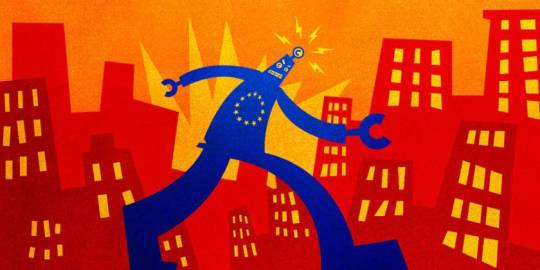
Postmortem: the catastrophic EU Copyright Directive (postmortem)
Yesterday, the Senate Subcommittee on Intellectual Property held hearings on "Copyright Law in Foreign Jurisdictions," at which two key copyright experts testified on last year's catastrophic EU Copyright Directive.
First up was Pam Samuelson, one of America's leading copyright experts, who explained in eye-watering detail how the compromises made to pass the Copyright Directive produced an incoherent mess that no one can figure out how to implement in law.
https://www.judiciary.senate.gov/imo/media/doc/Samuelson%20Testimony.pdf
Next was Julia Reda, who served in the EU Parliament during the passage of the directive and helped spearhead the opposition to it.
Her testimony really shows you where the bodies were buried: how the EU knew it was making a pig's ear out of things.
https://www.judiciary.senate.gov/imo/media/doc/Reda%20Testimony.pdf
Both are essential reading for anyone striving to understand Article 17 (formerly Article 13) – it is such a tangle of garbage lawmaking that these kinds of guides are indispensable.

Podcast: A Lever Without a Fulcrum Is Just a Stick (permalink)
I've just posted my latest podcast: a reading of my new Locus Magazine column, "A Lever Without a Fulcrum Is Just a Stick," on how copyright failed artists and enriched corporations and what we can do about it.
https://craphound.com/podcast/2020/03/11/a-lever-without-a-fulcrum-is-just-a-stick-2/
Tldr: Giving monopolies to artists doesn't help them gain leverage over the super-concentrated entertainment industry, because the corporations control access to audiences and force artists to sign away those monopolies to get past their gatekeeping.
The more monopolies we give artists, the more monopolies are transfered to corporations, and the more they dominate the market and thus the more they can retain from the earnings generated by the artists' works.
Fights like the EU Copyright Directive are a distraction, a fight over shifting some points from Big Tech's balance sheet to Big Content's – but without any mechanism to move more of that revenue to creators.
Enriching creators means thinking beyond more "monopoly"-style copyright: instead, we have to think about inalienable rights that can be taken away through one-sided contracts (like the "reversion right" that lets US artists take back copyrights after 35 years).
And we have to think beyond copyright itself, by beefing up competition laws to break up entertainment cartels, and by beefing up labor laws to let artists form unions.
There is a role for copyright, but in things like extended collective licensing that would allow all online platforms to access the same catalog and pay for it based on the number of users they have, so a new platform pays pennies while Youtube pays hundreds of millions.
These blanket licenses have been key to keeping other forums for artistic revenues open: think of what the world would be like if one club or radio station could buy the exclusive rights to play the hits of the day, and then use their ensuring dominance to squeeze artists.
If you prefer the written work, you can read the column here for yourself, of course:
https://locusmag.com/2020/03/cory-doctorow-a-lever-without-a-fulcrum-is-just-a-stick/
Here's a direct link to the MP3 of the reading (thanks as always to Internet Archive for hosting – they'll host you too, for free!):
https://archive.org/download/Cory_Doctorow_Podcast_330/Cory_Doctorow_Podcast_330_-_A_Lever_Without_a_Fulcrum_Is_Just_a_Stick.mp3
And here's the RSS for my podcast:
http://feeds.feedburner.com/doctorow_podcast
Now in its 14th year (Thanks to Mark Pesce for convincing me to start it)!
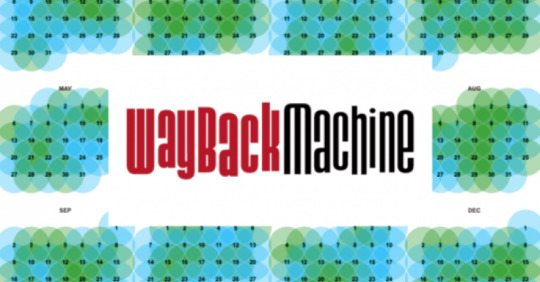
This day in history (permalink)
#10yrsago London Olympics: police powers to force spectators to remove non-sponsor items, enter houses, take posters http://uk.news.yahoo.com/22/20100303/tts-uk-olympics-london-ca02f96.html
#10yrsago Leaked documents: UK record industry wrote web-censorship amendment https://www.openrightsgroup.org/blog/2010/bpi-drafted-web-blocking
#5yrsago Piketty on the pointless cruelty of European austerity https://www.spiegel.de/international/europe/thomas-piketty-interview-about-the-european-financial-crisis-a-1022629.html
#5yrsago Rightscorp loses big on extortion racket https://torrentfreak.com/rightscorp-hemorrhages-cash-profit-from-piracy-remains-elusive-150311/
#5yrsago UK foreign secretary: stop talking about Snowden, let spies get on with it https://web.archive.org/web/20150315031642/http://www.theinquirer.net/inquirer/news/2399082/government-minister-is-bored-with-snowden-and-wants-to-get-on-with-surveillance
#1yrago Defect in car security system aids carjackers, thieves https://www.pentestpartners.com/security-blog/gone-in-six-seconds-exploiting-car-alarms/
#1yrago Former Archbishop of Canterbury cheers on students who are walking out to demand action on climate change https://www.theguardian.com/environment/2019/mar/10/rowan-williams-school-pupil-climate-protests
#1yrago Leaked Chinese database of 1.8 million women includes a field indicating whether they are "BreedReady" https://twitter.com/0xDUDE/status/1104482014202351616
#1yrago Why #Article13 inevitably requires filters https://www.communia-association.org/2019/03/05/final-x-ray-article-13-dangerous-legislative-wishful-thinking/

Colophon (permalink)
Today's top sources: Slate Star Codex (https://slatestarcodex.com/), Slashdot (https://slashdot.org), Fipi Lele, Matthew Rimmer (https://twitter.com/DrRimmer).
Hugo nominators! My story "Unauthorized Bread" is eligible in the Novella category and you can read it free on Ars Technica: https://arstechnica.com/gaming/2020/01/unauthorized-bread-a-near-future-tale-of-refugees-and-sinister-iot-appliances/
Upcoming appearances:
Museums and the Web: March 31-April 4 2020, Los Angeles. https://mw20.museweb.net/
Currently writing: I'm rewriting a short story, "The Canadian Miracle," for MIT Tech Review. It's a story set in the world of my next novel, "The Lost Cause," a post-GND novel about truth and reconciliation. I'm also working on "Baby Twitter," a piece of design fiction also set in The Lost Cause's prehistory, for a British think-tank. I'm getting geared up to start work on the novel afterwards.
Currently reading: Just started Lauren Beukes's forthcoming Afterland: it's Y the Last Man plus plus, and two chapters in, it's amazeballs. Last month, I finished Andrea Bernstein's "American Oligarchs"; it's a magnificent history of the Kushner and Trump families, showing how they cheated, stole and lied their way into power. I'm getting really into Anna Weiner's memoir about tech, "Uncanny Valley." I just loaded Matt Stoller's "Goliath" onto my underwater MP3 player and I'm listening to it as I swim laps.
Latest podcast: A Lever Without a Fulcrum Is Just a Stick https://archive.org/download/Cory_Doctorow_Podcast_330/Cory_Doctorow_Podcast_330_-_A_Lever_Without_a_Fulcrum_Is_Just_a_Stick.mp3
Upcoming books: "Poesy the Monster Slayer" (Jul 2020), a picture book about monsters, bedtime, gender, and kicking ass. Pre-order here: https://us.macmillan.com/books/9781626723627?utm_source=socialmedia&utm_medium=socialpost&utm_term=na-poesycorypreorder&utm_content=na-preorder-buynow&utm_campaign=9781626723627
(we're having a launch for it in Burbank on July 11 at Dark Delicacies and you can get me AND Poesy to sign it and Dark Del will ship it to the monster kids in your life in time for the release date).
"Attack Surface": The third Little Brother book, Oct 20, 2020.
"Little Brother/Homeland": A reissue omnibus edition with a very special, s00per s33kr1t intro.
13 notes
·
View notes
Text
Your “eco-friendly fashion” can go and f*ck itself, and so you do.
Let me explain this: no, I don’t hate the eco-friendly trending of, actually, trying to get the less waste of products and similar stuff, for we need to be more responsible with the planet because, just as Starlord said, we are the idiots living on it.
The problem comes when this idea of a “green life” becomes just another fashion to follow, building another bloody capitalist industry around it so those poor nasty rich people feel a little less bad for basically being the ones who contributes at more than 50% of carbon emissions and contamination. What am I talking about? Let’s check some advices to contribute to help the enviroment which are in fact just pacifiers for first world, good wealth people:
Wasting reduction, a.k.a “my zero waste challenge”. Yes, plastic is the big villain at this moment, and to fight against it the population across the world is recomending the use of certain stuff to replace it, like glass recipents (fun fact: some idiotics enjoy saying how millenials are guilty for using plastic containers instead of glass like “my good ol’ granpa used to”, but hey, guess which generation started exploiding petroleum -where plastic comes from- to increase their wealth and reduce costs of production? One clue: not Millenials) or fabric bags. A good idea? Yes, until you remember most of the products like food come in plastic stuff, and I’m not just talking about that first world obssession for covering their fruit and veggies with fucking plastic when, hello, fruits and veggies ARE ALREADY PROTECTED BY THEIR SKIN, YOU JUST NEED TO FUCKING WASH IT A LITTLE BEFORE COOKING.
Yes, Karen, I know what you’re thinking, “Well, duh, if you don’t like plastic around your food go to an organic market, they have this lovelies glass or fabric containers, stop complaining and do what U need to do”. And here comes problem number two:
Organic everything, the new way to show how rich you are. I have some news for ya, except for the processed food, EVERYTHING IS ORGANIC. The only problem is you are afraid of “toxicity in food for pesticides and dark water” which, guess what, is pushed violently by your bloody wild capitalism in order to produce more food. And now a lot of stores selling you organic, zero-waste, green food is just part of the same system, it just puts a huge stick in front of your ecologic container swearing these overpriced carrot (which vitamins are THE SAME AS THAT DOUBLE-LEGGED CARROT PLACES LIKE FUCKING WAL-MART RATHER THROWS TO THE GARBAGE) is good and fair... yeees, you just need to make some researchs on internet to find out the “fair price” for the peasants and agriculture workers just doesn’t equals the price you are paying to your white, nice lady in white uniform attending your weekly shopping of “clean” veggies and soy and quinoa.
I know some countries aren’t used of local/producers market where you’re actually buying to the producer and paying a low price that goes directly to the field workers, but here’s a funny thing: the organic stores doesn’t just sell you the idea of “organic, ecologic” stuff, but the key word is “clean”, the idea of a mutant potato sounds “unclean” for them, because if it has a brother stuck in a side of it is because it was soaked in “evil chemistry stuff to make it grow like that”. Well, say thanks to Monsanto for covering the world with their bloody products who are actually doing worse damage than your ugly looking veggies, and all of it just to make money and provide you, person of a wealthy, capitalist, whitey country, of your organic stores and the rest of your nice stuff like year model car and Starbucks.
In short: organic stores are just face washed supermarkets feeding with the explotation of people in other countries, putting an enormous, unnecessary price to their stuff which not everybody can afford just to make you feel good and a planet savior.
The cow didn’t suffered, but what about Pablo? I know I’m entering a dangerous point here, but with these eco-friendly trending, veganism has been exploited like the panacea for everything, from enviroment contamination to poor cows and pigs crying in the farms. And yes, becoming more aware of the cruelty towards animals has been the iceberg peak to become more humans and protective to the other living forms in our society, and yes, the carnic industry tends to be awful and utterly disgusting... IN FIRST WORLD COUNTRIES.
This might sound shocking, but the images of cattle of any shape being tormented since the moment of birth are usually from USA, UK and similar “farms” which act more like a corporation in the middle of a field than like a real farm. Places like South and Central America has a carnic indsutry which works pretty different; you can actually see, in a daily basis, cows and goats walking free in the farm’s territory, eating as much as they want and sometimes getting involved in fights with cars on the road, and though this isn’t an excuse for the late slaughter, at least those aren’t creatures jailed and tortured inside a 5x5 box. Chickens are the same, for instead of killing the males the farms in Mexico and sibbling countries rather let them grow to become the source of meat, the hens aren’t eaten a lot in our culture so they live to lay eggs and they also have a nice life in comparison with their north-americans or european pals.
In other words: stopping meat consume doesn’t make you the person of the year, but fighting for animal rights and stop eating meat from massive industries will help a lot more than just hating everyone for getting a burger.
“But still I rather take vegan products, soy and quinoa and other stuff...” Uh, do you remember what I said about the organic stores selling you smoke and mirrors? Yes, perhaps none animal died because of your vegan product (at least not none of the cuties like baby cows and chubby pigs, just a bunch of insects which exists as part of the natural balance and very probably wild life), but a lot of people of third world countries certainly will. Illegal buy of land made by corporations to needy goverments, privatization of fucking water from local comunities in order to create and feed fields of “organic food”, child and indigenous abuse due to this “legal steal” of land and bad payed, forced work (because in the end, the poor need to, you know, fucking live even if it’s at the minimun wage)... All of this so the white lady who enjoys speaking to managers and drives a massive truck just for her and her two children, can go and buy her quinoa and post a pic on Instagram claiming how “nice and easy” is save the enviroment.
Oh, I know, I’m being too mean to that people, am I? I don’t fucking care, because the hidden part of this fashion, the worst part of this idea of “ecologic capitalism” comes with this only truth:
Poor people aren’t “eco-friendly”. Classism has become the key to keep this trending just made for the wealthy, the idea of poor people not being “good with the enviroment” comes from a lot of cultural ideas created by the vision of a thirds of the population. Rich people hates seeing images of countries like India, Colombia, Phillipines and similar because the images sell a complete lie which helps to keep them in a bubble: poor people eating fast food or buying things in plastic containers is gross and they think “Oh thank God I left that life style behind” as they drive his car leaving a lot of CO2 compared to those who takes public transport, that same public transport that looks disgusting in those images I’m talking about, because hat portion of the world has no money to get new vehicles every year, because they can’t #govegan because their only sources of a certain quality food is the normal food, those who doesn’ have a seal of aproval which claims how enviroment-savior is, because that lack of wealth forces them to work much more than people of France, Germany or USA and gaining much less than them, with so little time to think on “being green”, sometimes even with little time to cook natural food in their homes, and of course being unable to pay to an inmigrant to cook for them like... well, you know like who. And because these poor people, who works and dies because their country and the “free market” is pushing them to a modern slavery for international corps which provide to their targets, people who aren’t from the South of the tropics, white and wealthy, free of any guilt because they spend 50 bucks every week in organic coffee which was grounded in the last remains of an indigenous land and harvested for a dark-skin, 10 y/o boy who is forced to work instead of studying because all this economic machine made him part of the poorest side of the society, the idea of being “better than others”. Because they’re selling the idea that being a helper for the enviroment is easy, as long as you can afford it in their terms, becaus they’re making you think your green bag is making more for the world than stop and think how those who make that bag are being paid 5 cents of dollar at day in a dark little room in the East of the world, consumed by the greed and vanity of capitalism.
You can be eco-friendly without spending like an idiot in that special stores and markets. How? You can recycle when you’re able to, you can use public transport or walk for short distances instead of depending of your car, you can carry water in a bottle to avoid buying one-use bottles outside, you can support your local producers market and stop thinking of the “zero waste challenge” and making it the “less, well thinking waste daily basis”. And, for the love of any God you’re praying to, STOP SUPPORTING FUCKING MARKET CHAINS OF ALLEGEDLY VEGAN, GLUTEN-FREE, ECOLOGIC SHIT. If you have the time and money to make your own food or to spend less plastic, FUCKING DO IT FOR YOURSELF AND NOT VIA BUYING USELESS SHIT FROM THOSE COMPANIES.
This was my 2020 year advice, thanks for reading. If you want more info, you can search for “international agriculture explotation”, “organic food origin” and “most enviromental dangerous companies” in your favorite searcher.
#personal#enviroment#eco friendly#organic food#veganism#classism#international companies#food industry
35 notes
·
View notes